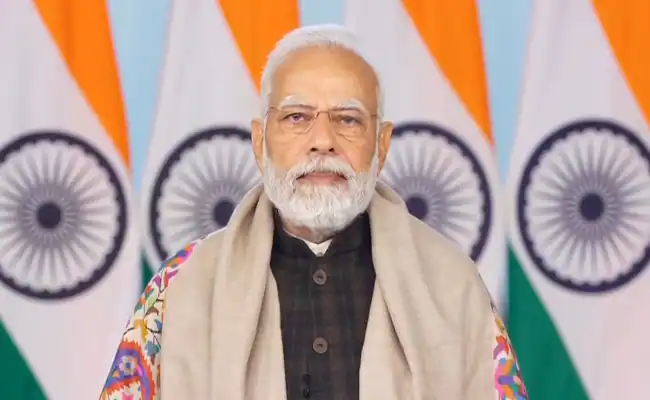On Wednesday, as students gathered to watch a new BBC documentary about Prime Minister Narendra Modi that India has declared propaganda and has banned from streaming and social media sharing, the Delhi police detained them. Indian police detain students gathered to watch Modi’s BBC documentary.
This comes after similar protests, some of which escalated to violence, at student gatherings this week to view the documentary that criticises Modi’s management of fatal riots twenty years ago, as his opponents challenge government censorship.
In February 2002, when Modi was Gujarat’s chief minister, a rumoured Muslim mob set fire to a train transporting Hindu pilgrims, sparking one of independent India’s deadliest religious bloodsheds. Modi is running for re-election in a year.
The government has said the BBC documentary “India: The Modi Question” released last week is a biased “propaganda piece” and has blocked the sharing of any clips from it on social media.
The Students’ Federation of India (SFI) said on Wednesday it plans to show the documentary in every Indian state, “They won’t stop the voice of dissent,” said Mayukh Biswas, general secretary of the SFI, the student wing of the Communist Party of India (Marxist).
Indian police detain students gathered to watch Modi’s BBC documentary. At Delhi’s Jamia Millia Islamia institution, 13 students were held in the midst of a significant police presence prior to one of those screenings. According to police, the institution accused the students of causing a “ruckus on the street” and claimed they lacked the authorization to hold the performance.
“There is no chance that anybody who tries to disturb the discipline of the university will go free,” the university’s vice-chancellor, Najma Akhtar, told Reuters.
Students from Delhi’s Jawaharlal Nehru University claimed that the following day, bricks were thrown at them as they attempted to see the documentary by purportedly right-wing individuals.
After the power went out about 30 minutes prior to the documentary’s scheduled screening, according to student leader Aishe Ghosh, they were watching it on their phones and laptops.
In order to prevent the documentary from being aired, the university had refused permission and issued a disciplinary warning.
“It was obviously the administration that cut off the power,” Ghosh said. “We are encouraging campuses across the country to hold screenings as an act of resistance against this censorship.”
When questioned about the campus power outage, the university’s media coordinator remained silent.
A message requesting feedback from a representative of the right-wing student organisation went unanswered. No one from the police department responded to inquiries.
On Tuesday, protests broke out when the movie was shown on campuses in Kerala, a southern state, while the performance was cancelled midway through at a university in Chandigarh, a northern city, according to local media reports.
In response to the ban on posting documentary clips on social media, Derek O’Brien, a lawmaker in the upper house of parliament, posted on Twitter on Saturday that the opposition “will continue to fight the good fight against censorship.”
According to the BBC, its documentary series investigates the conflicts between the Hindu majority and the Muslim minority in India and looks at Modi’s politics in light of those conflicts.
“The documentary was rigorously researched according to highest editorial standards,” the BBC said.
According to the BBC, it included comments from members of Modi’s Hindu nationalist Bharatiya Janata Party as well as “a wide range of voices, witnesses, and experts.”
